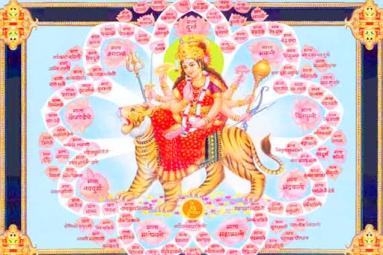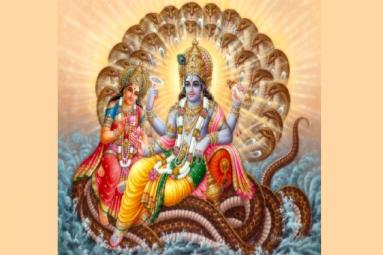
(Image source from: Shiva Sahasranamam)
The Shiva sahasranama is a list (sahasranama) of a thousand names of Shiva, one of the most important deities in Hinduism. In Hindu tradition a sahasranama is a type of devotional hymn (Sanskrit: stotra) listing many names of a deity. The names provide an exhaustive catalog of the attributes, functions, and major mythology associated with the figure being praised.
There are at least eight different versions of the Shiva sahasranama. The version appearing in Book 13 (Anusasanaparvan) of the Mahabharata is considered the kernel of this tradition. The eight versions analyzed by Ram Karan Sharma are:
1. Mahabharata
2. Linga Purana is close to the Mahabharata Anushasanaparvan version.
3. Linga Purana has some passages in common with LP version 1, but also with other sources
4. Shivapurana
5. Mahabharata, The critical edition of the Mahabharata.
6. Vayu Purana is almost the same as the Mahabharata santiparvan version.
7. Brahmanda Purana is almost the same as the Vayu Purana version.
8. Mahabhagavata Upapurana appears to be of comparatively recent origin.
In the version that occurs in book thirteen of the Mahabharata, Krishna recites the 1,008 names of Shiva to Yudhisthira. Yudhisthira had asked Bhishma the names of Shiva but Bhishma admitted his ignorance and requested him to ask Krishna. Interestingly, the thousand names of Vishnu, or Vishnu sahasranama, also occurs in the same chapter. Some overlapping of names with the Vishnu sahasranama has led Adi Shankara to conclude that Shiva and Vishnu are both identical, as two different aspects of one cosmic reality known as Brahman.







